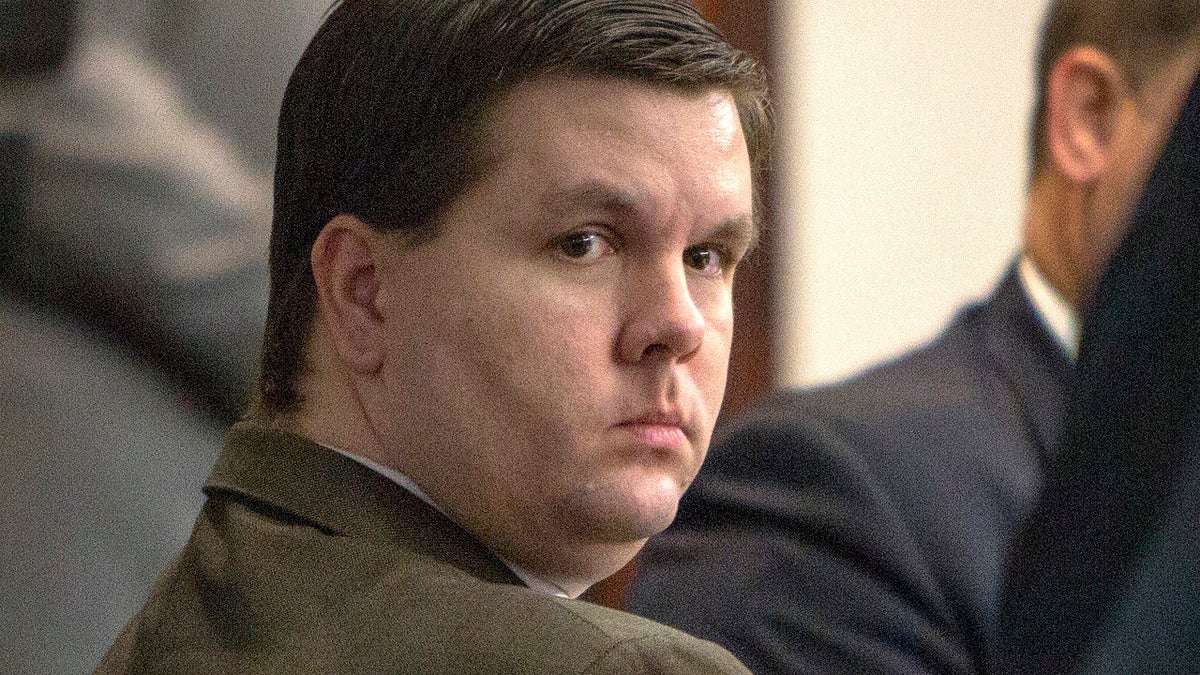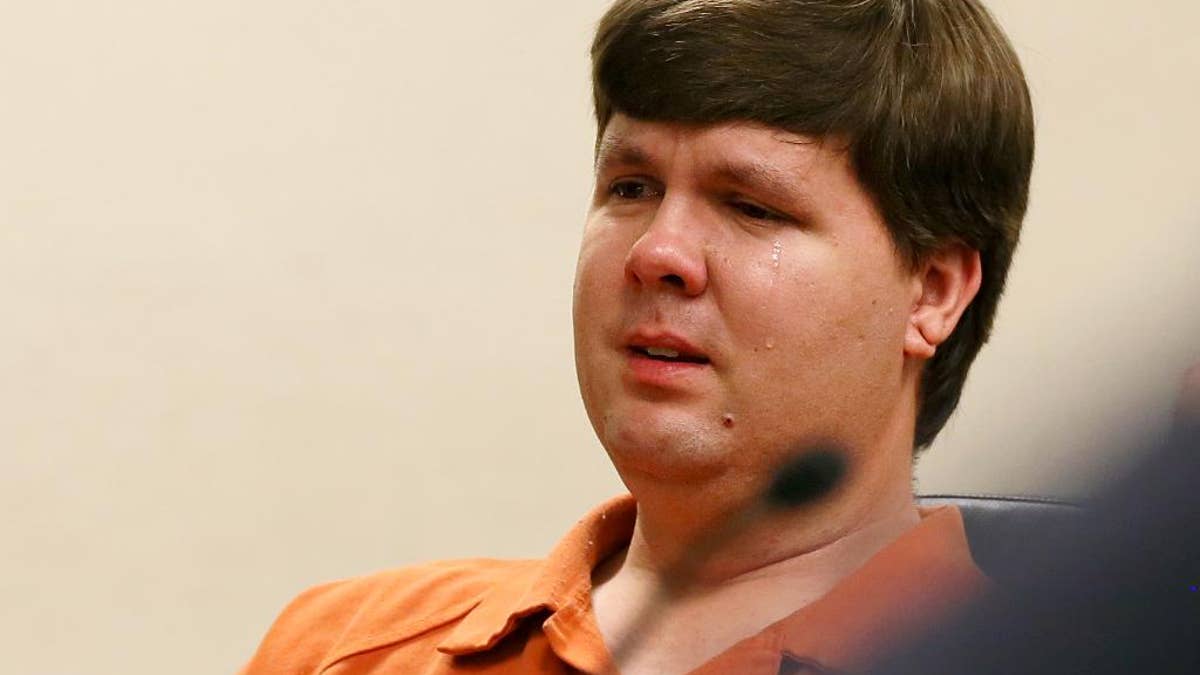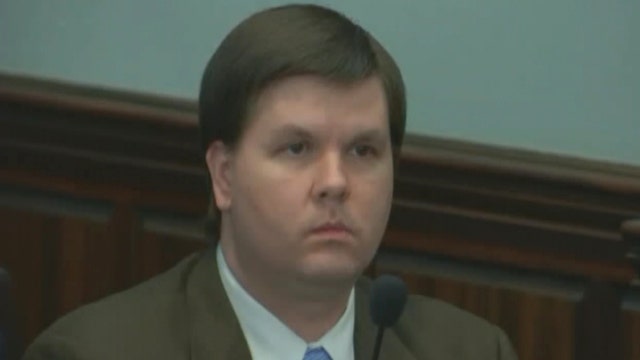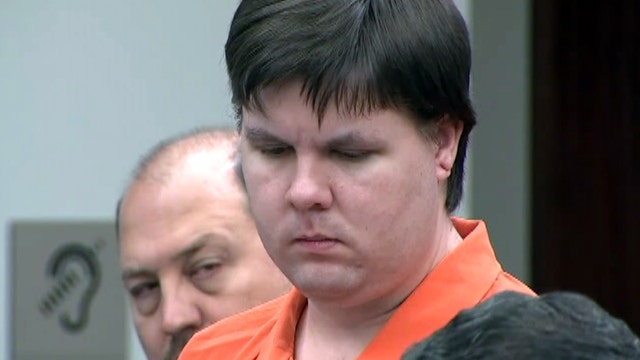Watch reaction as jury reads verdict in 'hot car death'
Raw video: Georgia father Justin Ross Harris found guilty of murder in death of his 22-month-old son
The Georgia man whose toddler son died after he left the boy in a hot car for hours is appealing his conviction to the state Supreme Court, arguing that prosecutors presented "an avalanche" of inappropriate evidence before the jury, which ultimately found him guilty of murder and child cruelty, among other charges, according to records and a report.
Justin Ross Harris, 41, is arguing through attorneys that the judge overseeing his 2016 trial should never have allowed evidence of Harris' extramarital communications and in-person trysts presented at trial because his sexual misconduct had nothing to do with the death of his 22-month-old son, Cooper, and were prejudicial.
"The sexual messaging acts did not make it more probable that Mr. Harris would intentionally kill his child," Harris’ attorney, Mitch Durham, told the Georgia Supreme Court during the Tuesday morning hearing, according to the Atlanta Journal-Constitution.

In this Oct. 3, 2016, file photo, Justin Ross Harris listens during his trial at the Glynn County Courthouse in Brunswick, Georgia. The Georgia man found guilty of murder in the 2014 death of his toddler son, who died after he was left in a hot car for hours, is asking the state’s highest court to overturn his conviction. (Stephen B. Morton/Atlanta Journal-Constitution via AP, Pool, File)
Harris, who moved from Tuscaloosa, Alabama, to the Atlanta area for work in 2012, told police he forgot to drop his son off at day care on the morning of June 18, 2014, driving straight to his job as a web developer for Home Depot without remembering that Cooper was still in his car seat.
Cooper died after sitting for about seven hours in the back seat of the vehicle outside his father's office in suburban Atlanta, where temperatures that day reached at least into the high 80s.
EX-WIFE: FATHER CARED DEEPLY FOR CHILD WHO DIED IN HOT CAR
Prosecutors argued at trial that Harris was unhappily married and killed his son on purpose to free himself. Defense attorneys described him as a doting father and said the boy's death was a tragic accident.

Ross Harris was sentenced to life in prison without parole for leaving his son, Cooper, in a hot SUV to die.
During Tuesday’s oral arguments, the justices asked Cobb County prosecutor Linda Dunikoski about the government’s decision to include so many pieces of evidence related to Harris’ sexual activities, according to the AJC.
"I will say you did a remarkable job of proving he’s a terrible person," Justice Nels Peterson reportedly said during the hearing. "But proving he is a terrible person isn’t the same as proving he murdered his child."
Peterson later added: "Maybe messages with underage people, evidence of prostitutes and all of that was so much more prejudicial than it was probative," according to the report.
One example reportedly mentioned during the hearing was the prosecution's decision to include – with the judge’s permission – nine full-sized, colored images of Harris’ genitalia.
Dunikoski, who was recently involved in the state’s successful case against the three men accused in the death of Ahmaud Arbery, said she had "no idea" why prosecutors chose to do so, reports state.
EX-WIFE SAYS DAD ACCUSED OF MURDER IN SON'S HOT CAR DEATH 'DESTROYED MY LIFE'
The prosecutor noted that the jury had the option of convicting Harris of something other than murder in connection with this son’s death, but chose to find him guilty of murder, according to WSB Radio.
Dunikoski went on to tell the judges that there was "overwhelming evidence that he murdered his child," but the judges questioned her statement.
"You’re really going to say the evidence of intent here was overwhelming?" Chief Justice David Nahmias asked, according to the AJC.
Dunikoski reportedly then clarified: "I misspoke. ... Viewing the evidence as reasonable jurors would view it, there is a high probability the sexting messaging evidence did not contribute to the murder verdict."
Harris was convicted in November 2016 on eight counts, including malice murder, in the death of his son. He was sentenced to life without parole plus 32 more years in prison for other crimes.
A defense brief filed with the high court ahead of Tuesday's arguments describes how police officers who interacted with Harris in the days after his son's death didn't think he acted the way a father should under the circumstances, and began investigating all aspects of his life.
Investigators "cherry picked the mountain of electronic data to support the conclusion that (Harris) murdered his son, ignoring contrary evidence," the defense brief says. Evidence showed that he was a loving and attentive father, even if his exchanging sexually explicit messages and graphic photos with women and teenage girls and meeting some of them for sex revealed that Harris was not a great husband, the brief says.
Durham has further argued that there was insufficient evidence to show that Harris intended to kill his son and that some of his internet searches, activity and messages were twisted to fit that narrative. He says the evidence of sexual misconduct served only to prejudice the jury against Harris.
BOTH PARENTS OF GEORGIA BOY LEFT TO DIE IN UNATTENDED CAR RESEARCHED HEAT DEATHS, POLICE SAY
The defense attorney also says the trial judge made mistakes in requiring the defense to disclose the notes of a defense expert, allowing the introduction of a 3D animated video and limiting the cross-examination of certain witnesses. Each of those errors is enough to justify a new trial, but even if the high court finds each of them alone to be relatively harmless, their collective prejudicial effect is sufficient to authorize a new trial, Durham argues.

In a Thursday, July 3, 2014, file photo, Justin Ross Harris, the father of a toddler who died after police say he was left in a hot car for about seven hours, weeps as he sits at his bond hearing in Cobb County Magistrate Court in Marietta, Georgia. (The Associated Press)
Meanwhile, the state has argued that the evidence of Harris' sexual conduct outside his marriage is relevant because it illustrates his motive for killing his son. To conclude that Harris did not act with malice or criminal negligence by leaving his son in a hot car, the high court "would have to ignore the evidence about Harris' double life and its deep connection to his motive for killing Cooper."
Prosecutors further say the trial judge correctly decided these issues and Harris' convictions and sentence should be upheld.
CLICK HERE TO GET THE FOX NEWS APP
"Cooper Harris did not get a second chance on June 18, 2014, and his father has fallen short of demonstrating that he is entitled to a second chance in this appeal," the district attorney's brief says.
The Associated Press contributed to this report.




